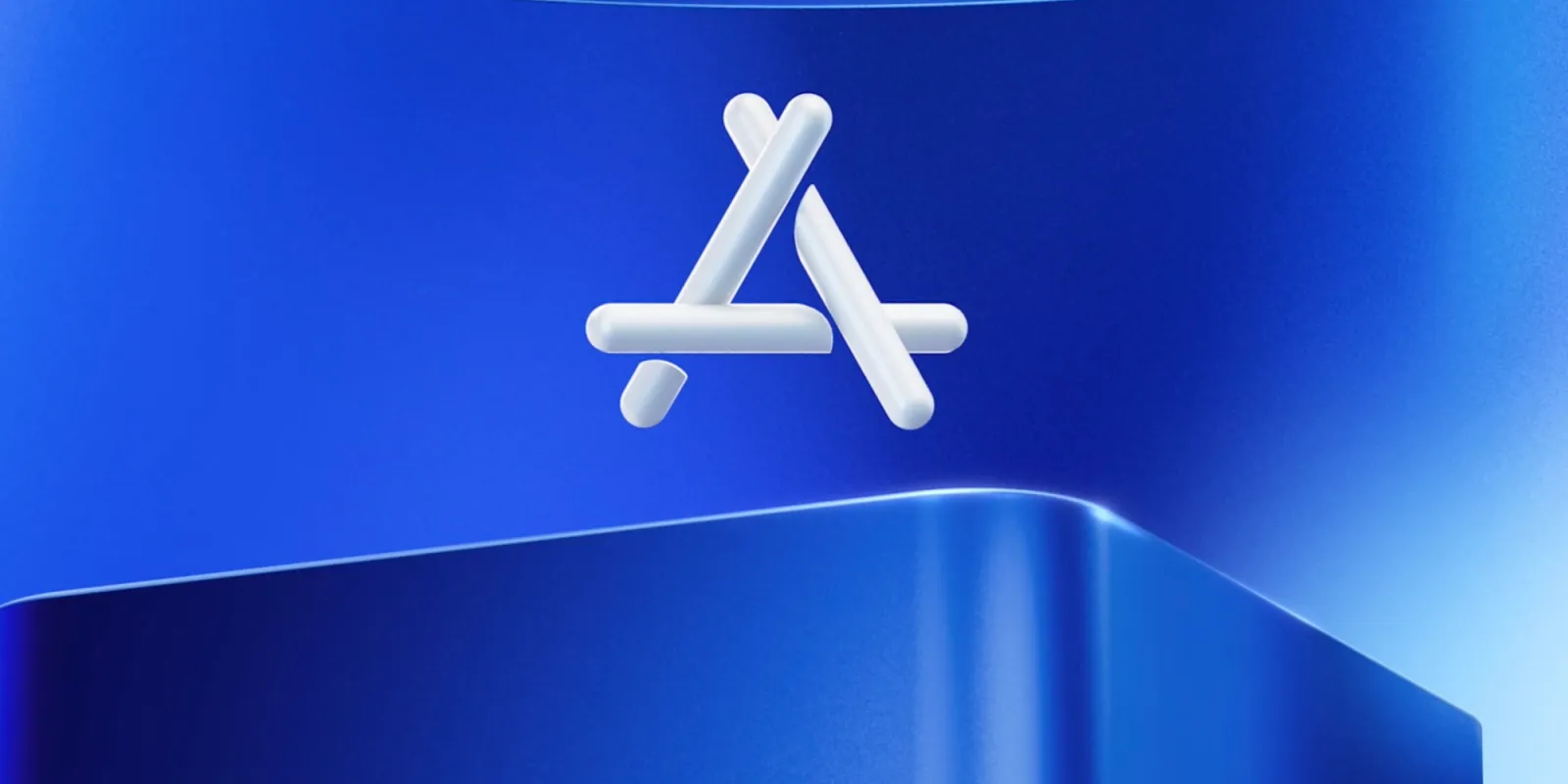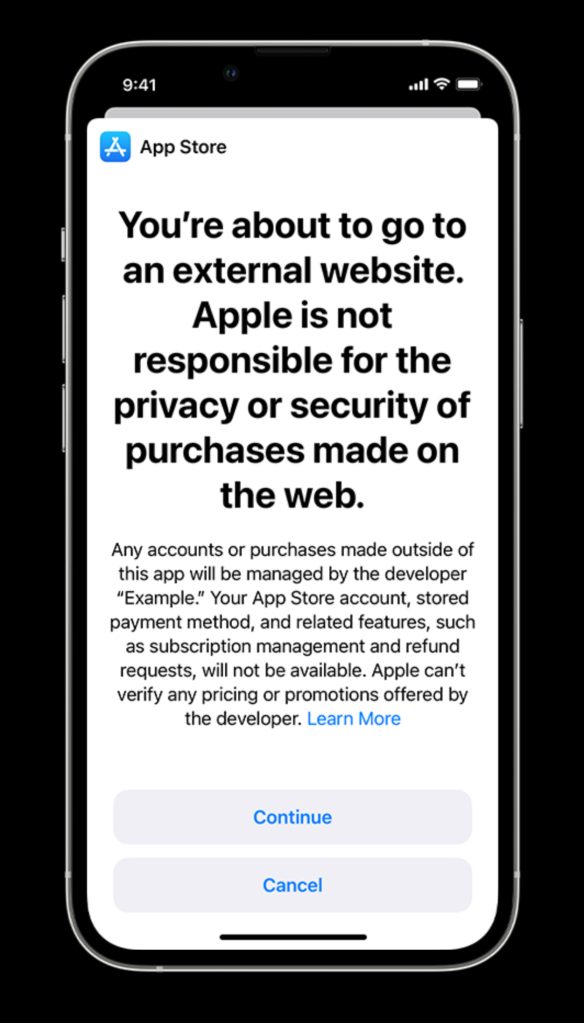
In light of the US Supreme Court denying to hear Apple’s appeal in its legal battle with Epic Games, Apple has announced a handful of changes coming to the App Store Guidelines. Starting today, Apple is updating the App Store Guidelines to comply with the outcome of the 2021 Apple vs. Epic trial.
The changes reform Apple’s guidelines to relax its anti-steering rules that have previously prohibited developers from linking to alternative payment systems in their apps.
The revised App Store guidelines
The changes Apple is making to the App Store guidelines apply in the United States. They are similar to the changes Apple previously made specifically for dating applications in the Netherlands.
Apple is updating its App Store guidelines to allow developers to link to alternative payment methods, provided that the app also offer purchases through Apple’s own In-App Purchase system. This means that an app can’t include links to alternative payment platforms if that app doesn’t also use Apple’s In-App Purchase system.

The guideline says that developers can apply for an entitlement that allows them to include buttons or links directing users to out-of-app purchasing mechanisms.
“Developers may apply for an entitlement to provide a link in their app to a website the developer owns or maintains responsibility for in order to purchase such items. Learn more about the entitlement. In accordance with the entitlement agreement, the link may inform users about where and how to purchase those in-app purchase items, and the fact that such items may be available for a comparatively lower price.
The entitlement is limited to use only in the iOS or iPadOS App Store on the United States storefront. In all other storefronts, apps and their metadata may not include buttons, external links, or other calls to action that direct customers to purchasing mechanisms other than in-app purchase.”
According to Apple, the link to an alternative payment platform can only be displayed on “one app page the end user navigates to (not an interstitial, modal, or pop-up), in a single, dedicated location on such page, and may not persist beyond that page.”
Apple has provided templates that developers can use for communicating with customers about alternative in-app payment systems:
- For special offers go to [X]
- Lower prices offered at [X]
- To get [X%] off, go to [X]
- Buy for [$X.XX] at [X]
Apple will still collect a commission
Apple has also confirmed that it will charge a commission on purchases made through alternative payment platforms. This commission will be 12% for developers who are a member of the App Store Small Business Program and 27% for other apps.
The commission will apply to “purchases made within seven days after a user taps on an External Purchase Link and continues from the system disclosure sheet to an external website.”
Apple says developers will be required to provide accounting of qualifying out-of-app purchases and remit the appropriate commissions.
To help ensure collection of Apple’s commission, developers are required to provide a periodic accounting of qualifying out-of-app purchases, and Apple has a right to audit developers’ accounting to ensure compliance with their commission obligations and to charge interest and offset payments.
As both this Court and the Ninth Circuit recognized, collecting a commission in this way will impose additional costs on Apple and the developers.
Top comment by Duane Locsin
THE SOLUTION:
File class action lawsuit on Apple on behalf of consumers and competitors
and governments around the world initiate anti-trust measures against Apple corporation.
Break open Apple's iOS/iPadOS wall gardened to give consumers FREEDOM to choose to purchase, download and install without having to go through Apple's monopoly gatekeeping App store if they want.
I expect the EU once again to take the lead against Apple.
What do Apple shareholders here think about that?
However, Apple also says that collecting this commission will be “exceedingly difficult and, in many cases, impossible.”
“Although developers are contractually obligated to pay the commission, as a practical matter, with hundreds of thousands of developers with apps on the U.S. storefronts for the iOS and iPadOS App Stores, collection and enforcement will be exceedingly difficult and, in many cases, impossible.”
More details
Apple has some more guidelines for developers who wish to adopt this entitlement, saying that the outside link must:
- Go directly to Your website without any redirect or intermediate links or landing page
- Open a new window in the default browser on the device, and may not open a web view
- Not pass additional parameters in the URL, to protect the end user (for example, their privacy);
- Be statically-defined in the <<SKExternalPurchaseLink>> in Your app’s info.plist before submission to the App Store;
- Be submitted with Your StoreKit External Purchase Link App (US) to the App Store, and shall be resubmitted if the URL changes;
- Be accompanied by language and a button adhering to the requirements provided in the Apple Materials;
- Not mimic Apple’s in-app purchase system, nor discourage end users from using it;
- Be displayed in Your StoreKit External Purchase Link App (US) on no more than one app page the end user navigates to (not an interstitial, modal, or pop-up), in a single, dedicated location on such page, and may not persist beyond that page;
- Not be displayed on any page that is part of an in-app flow to merchandise or initiate a purchase using in-app purchase; and
- Comply with any additional requirements provided in the Apple Materials.
The other anti-steering change that Apple is required to make is to allow developers to communicate with customers outside of their apps about alternative purchasing options, such as via email. Apple made this change in 2021 as part of its settlement of a class-action lawsuit brought on by small developers.
Obtained by 9to5Mac, you can find Apple’s finalized, filed, and stamped documents below.
FTC: We use income earning auto affiliate links. More.





Comments